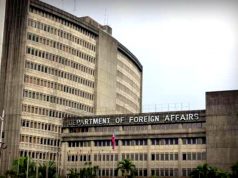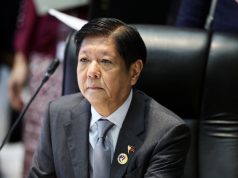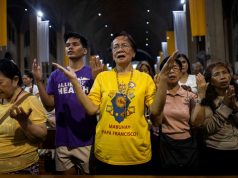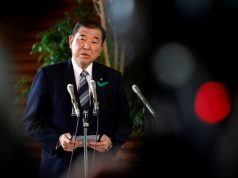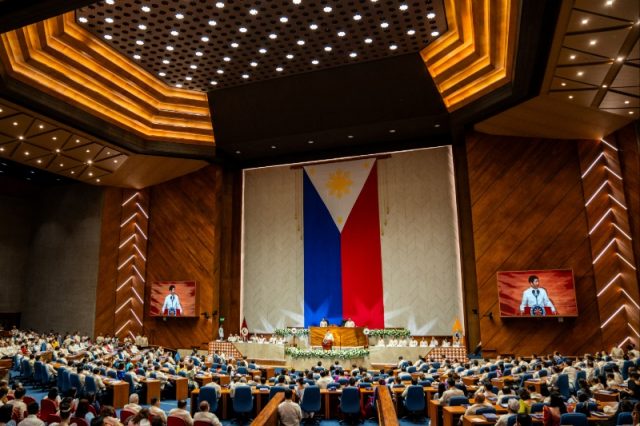
MANILA (Updated 7:36 p.m.) — Philippine President Ferdinand Marcos Jr. said on Monday his country cannot yield or waver on its position in the South China Sea, but will find ways to de-escalate tensions in the contested waters.
In his State of the Nation Address, Marcos said maritime disputes must be settled through diplomatic channels under the rules-based international order.
“In the face of challenges to our territorial sovereignty, we will assert our rights and interests in the same fair and pacific way that we have always done,” Marcos said.
Marcos’ remarks, which received a standing ovation from Congress, came after the Philippines said on Sunday it reached a “provisional arrangement” about its resupply missions to the contested Second Thomas Shoal in the South China Sea.
While neither China nor the Philippines provided details of the arrangement, Manila said on Monday it “will not prejudice our respective national positions”.
“In our desire to de-escalate the situation in the South China Sea to manage differences in a peaceful manner, we emphasize that the agreement was done in good faith and the Philippines remains ready to implement it,” the Philippines‘ Department of Foreign Affairs said in a statement.
“We urge China to do the same.”
The Chinese foreign ministry confirmed a “provisional agreement” with the two sides agreeing to jointly manage maritime differences and de-escalate the situation.
China claims nearly all of the South China Sea, including the Second Thomas Shoal, where the Philippines maintains a rusty naval ship, the Sierra Madre, that it deliberately grounded in 1999 to reinforce its maritime claims.
Manila regularly sends supply missions to sailors stationed at the shoal, turning it into a flashpoint with Beijing. During a mission last month, a Filipino sailor lost a finger after what the Philippine military described as intentional ramming by China Coast Guard vessels against its boats.
China, which has maintained its actions in the waterway were lawful, reiterated its demand on Monday for the Philippines to tow away the grounded warship, and said it would not accept Manila shipping large amounts of building materials to the shoal.
“Between now and when the warship is towed away, should the Philippines need to send living necessities to the personnel living on the warship, China is willing to allow it in a humanitarian spirit if the Philippines informs China in advance and after on-site verification is conducted,” the Chinese foreign ministry in a statement.
The Philippine has previously said it was against informing China in advance about its resupply missions, which it maintains are lawful, and said this had not changed under the new deal despite the statement from the Chinese ministry.
“The principles and approaches laid out in the agreement were reached through a series of careful and meticulous consultations between both sides that paved the way for a convergence of ideas without compromising national positions,” the Philippines‘ Department of Foreign Affairs said.
“The spokesperson’s statement therefore regarding prior notification and on-site confirmation is inaccurate,” it added.
China rejects a 2016 ruling by the Permanent Court of Arbitration in the Hague that Beijing’s expansive claims had no basis under international law. The case was brought to the court by the Philippines.
Chinese foreign ministry spokesperson Mao Ning said the temporary arrangement with the Philippines on the delivery of humanitarian supplies “reflects China’s goodwill.”
READ: Timeline: Rift deepens between the Philippines, China over South China Sea | South China Sea: Why are China and Philippines tensions heating up?
—Reporting by Neil Jerome Morales, Mikhail Flores and Karen Lema; Additional reporting by Liz Lee in Beijing; Editing by John Mair and Christina Fincher






